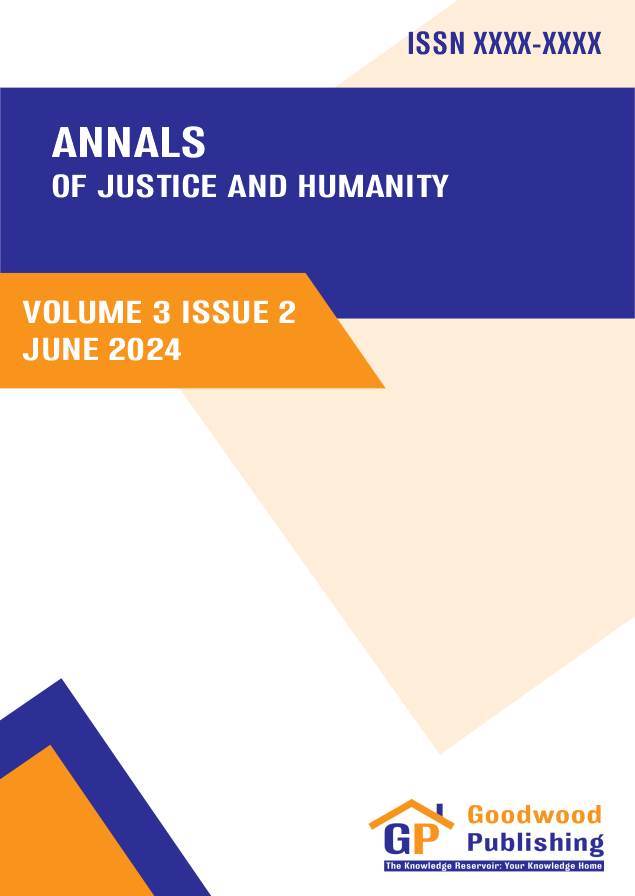Article Details
Vol. 3 No. 2 (2024): June
Legal analysis of disparity in military court judges' decisions faced with the principle of military interests
Abstract
Purpose: The focus of the discussion in this study is the decision on crimes against morality committed by TNI soldiers.
Research methodology: The research method used is normative juridical which is carried out by analyzing various decisions related to crimes against morality committed by TNI soldiers and related laws and regulations.
Results: The verdict of the military court in cases of criminal acts of indecency committed by the TNI which were sentenced to prison sentences were relatively the same, ranging from five months to one year, but for additional penalties in the form of dismissal from the TNI service there was a disparity of 34% which caused legal uncertainty for every TNI soldier who committed a criminal act of indecency, especially with the penalty of dismissal from the TNI Service. The influencing factor on the judge's decision for additional criminal dismissal is related to military interests which state that the perpetrators of criminal acts of indecency are still needed by the TNI Institution and have an important role in supporting the main tasks of the TNI and there is no replacement who has the same ability as the perpetrators of criminal acts of indecency so that the judge's decision does not include the additional penalty of dismissal from the TNI service.
Keywords
How to Cite
Download Citation
References
- Adji, O. S. (1985). Hukum pidana pengembangan. Jakarta: Erlangga.
- Agustinus, A., & Prastopo, P. (2020). Paradigma Baru Hukum Disiplin Militer: Undang-Undang Nomor 25 Tahun 2014. Depok: Rajawali Press.
- Alim, M. Z., Triono, A., & Yudhi, R. (2023). The right to environmental cleanliness through waste management in West Lampung Regency. Annals of Justice and Humanity, 2(2), 53-63. doi:https://doi.org/10.35912/ajh.v2i2.1819
- Dewantara, N. A. (1987). Masalah kebebasan Hakim dalam menangani suatu perkara pidana: Aksara Persada Indonesia.
- Ekawati, D., & Yudoko, G. (2024). Strategy for Automation and Digitalization in Indonesian Aerospace Manufacturing. Jurnal Bisnis dan Pemasaran Digital, 3(2), 91-105. doi:https://doi.org/10.35912/jbpd.v3i2.4510
- Harefa, P. G., Idham, I., & Erniyanti, E. (2023). Analisis Teori Hukum terhadap Penegakan Tindak Pidana Pemalsuan Uang: Analisis Teori Hukum Positif dan Teori Hukum Responsif. Jurnal Ilmiah Hukum dan Hak Asasi Manusia, 2(2), 113-119. doi:https://doi.org/10.35912/jihham.v2i2.1923
- Muladi, M., & Arief, B. N. (2010). Teori-teori dan Kebijakan Pidana. Bandung: Alumni.
- Permatasari, A., & Wibowo, A. (1999). Pengantar Hukum Humaniter. Jakarta: ICRC.
- Siagian, A., Riza, K., & Lubis, I. H. (2023). Analisis Penegakan Hukum terhadap Perusahaan Pers yang Tidak Berbadan Hukum. Kajian Ilmiah Hukum dan Kenegaraan, 1(1), 35-42. doi:https://doi.org/10.35912/kihan.v1i1.1867
- Tarasari, N., & Nasywa, Z. (2021). Alternative settlement of dispute between Israel and Palestine. Annals of Justice and Humanity, 1(1), 21-27. doi:https://doi.org/10.35912/ajh.v1i1.1382
- Undang-undang (UU) Nomor 31 Tahun 1997 tentang Peradilan Militer.
- Undang-undang (UU) Nomor 48 Tahun 2009 tentang Kekuasaan Kehakiman.
- Undang-Undang Dasar Negara Republik Indonesia Tahun 1945.
- Wibowo, W. (2014). Pengantar hukum hak asasi manusia. Pusat Studi Hukum Militer Sekolah Tinggi Hukum Militer “AHM-PTHM”, Jakarta.
- Zailani, R., Idham, I., & Erniyanti, E. (2023). Analisis Yuridis Proses Penyidikan Tindak Pidana Terorisme menurut Hukum di Indonesia: Analisis Teori Hukum Positif dan Teori Hukum Responsif. Kajian Ilmiah Hukum dan Kenegaraan, 1(2), 63-69. doi:https://doi.org/10.35912/kihan.v1i2.1908
License

This work is licensed under a Creative Commons Attribution-ShareAlike 4.0 International License.

